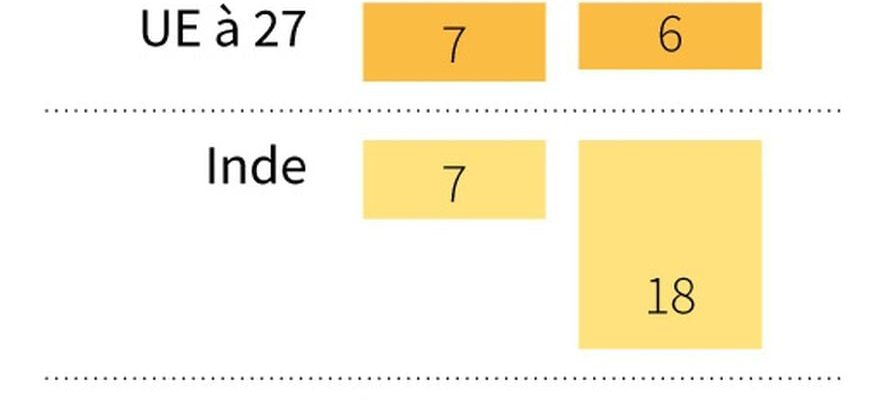The United Arab Emirates, which chaired COP28, and their successors, Azerbaijan for COP29 and Brazil for COP30, announced on Tuesday that they had launched an unprecedented partnership to “improve cooperation and continuity” in global climate negotiations with the objective of limiting warming to 1.5°C.
This “troika of COP presidencies”, provided for by the final agreement of the 28th United Nations Conference on Climate Change, must “guarantee the collaboration and continuity necessary to keep the polar star of 1.5°C in sight , from Baku to Belém and beyond,” said Sultan Al Jaber, President of COP28, quoted in a press release.
The 198 countries which adopted the final agreement of COP28 on December 13 in Dubai, had given a mandate for these three presidencies to work together on “a roadmap for the 1.5°C mission”, the most ambitious objective of the the Paris agreement, seriously threatened by the trajectory of humanity’s greenhouse gas emissions.
The biggest emitters of greenhouse gases
© / afp.com/Nalini LEPETIT-CHELLA, Sophie RAMIS
Current country commitments put the world on a warming trajectory of 2.5° to 2.9°C over the century, according to UN calculations. The limit of 1.5°C will probably be reached between 2030-2035, according to estimates by United Nations climate experts (IPCC). The latter emphasize that each additional tenth of a degree intensifies and multiplies extreme phenomena.
This partnership, according to the final agreement of COP28, must “significantly strengthen international cooperation and the enabling international environment to stimulate ambition in the next cycle of nationally determined contributions”, i.e. each country’s emissions reduction plans (NDC), which must be revised upwards by the COP30 in Belém, Brazil in 2025.
This “with a view to strengthening action and implementation during this critical decade and keeping the 1.5°C mark within reach”, according to the agreement.
Financial flows to the South
At COP28, the world agreed to “transition away” from fossil fuels, but the agreement did not contain progress on unlocking financial flows to developing countries, a major sticking point in global negotiations. This subject promises to be a central theme of COP29 in Baku, which must set a new objective for climate financial aid provided by developed countries.
Two years late, rich countries have “probably” achieved their initial promise of $100 billion in annual climate financing by 2022, according to the OECD. Public aid, however, is insufficient: by 2030, developing countries, not including China, will have an annual need of 2,400 billion dollars, according to a calculation by UN experts.
To meet the 1.5°C limit, “it will be essential to establish a new financing target, which reflects the scale and urgency of the climate challenge,” said COP29 President-designate Mukhtar Babayev, Minister of Ecology and Natural Resources, presenting himself as a “builder of bridges between the developed and developing world.”
